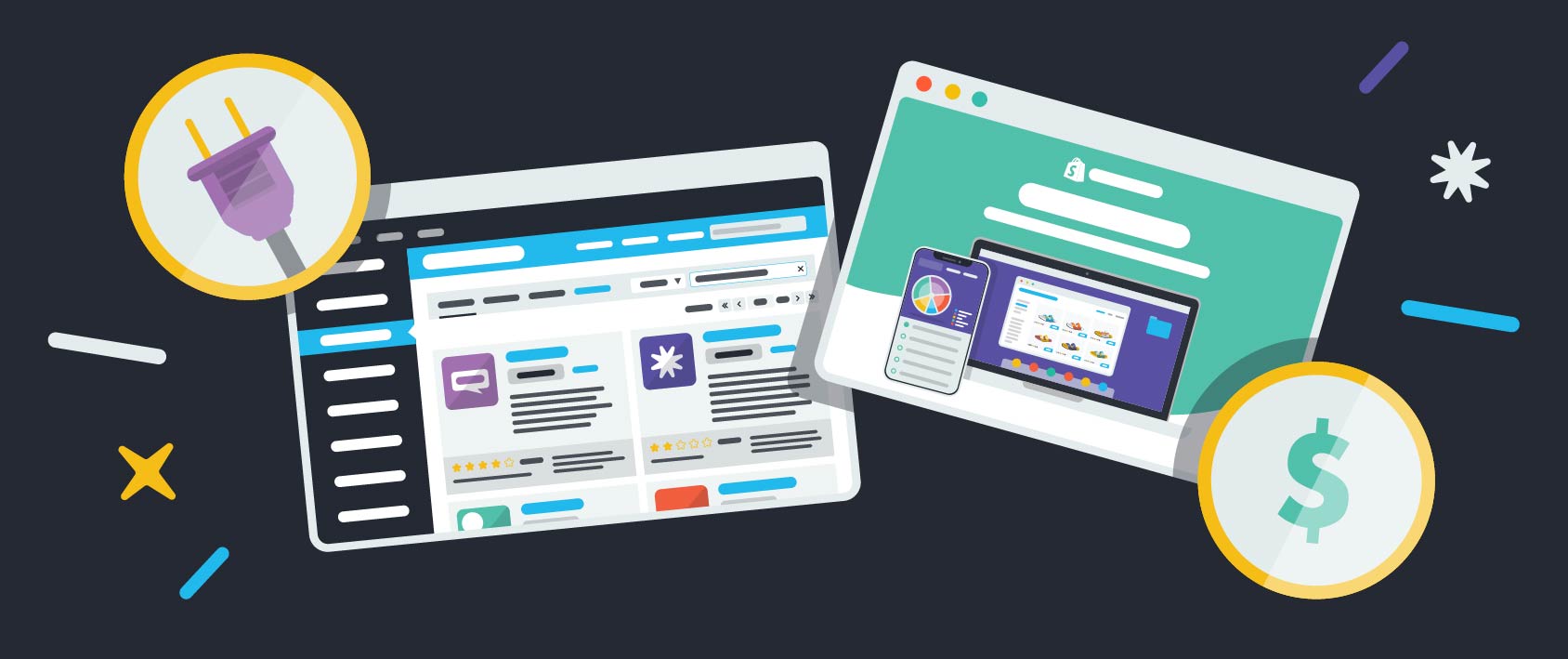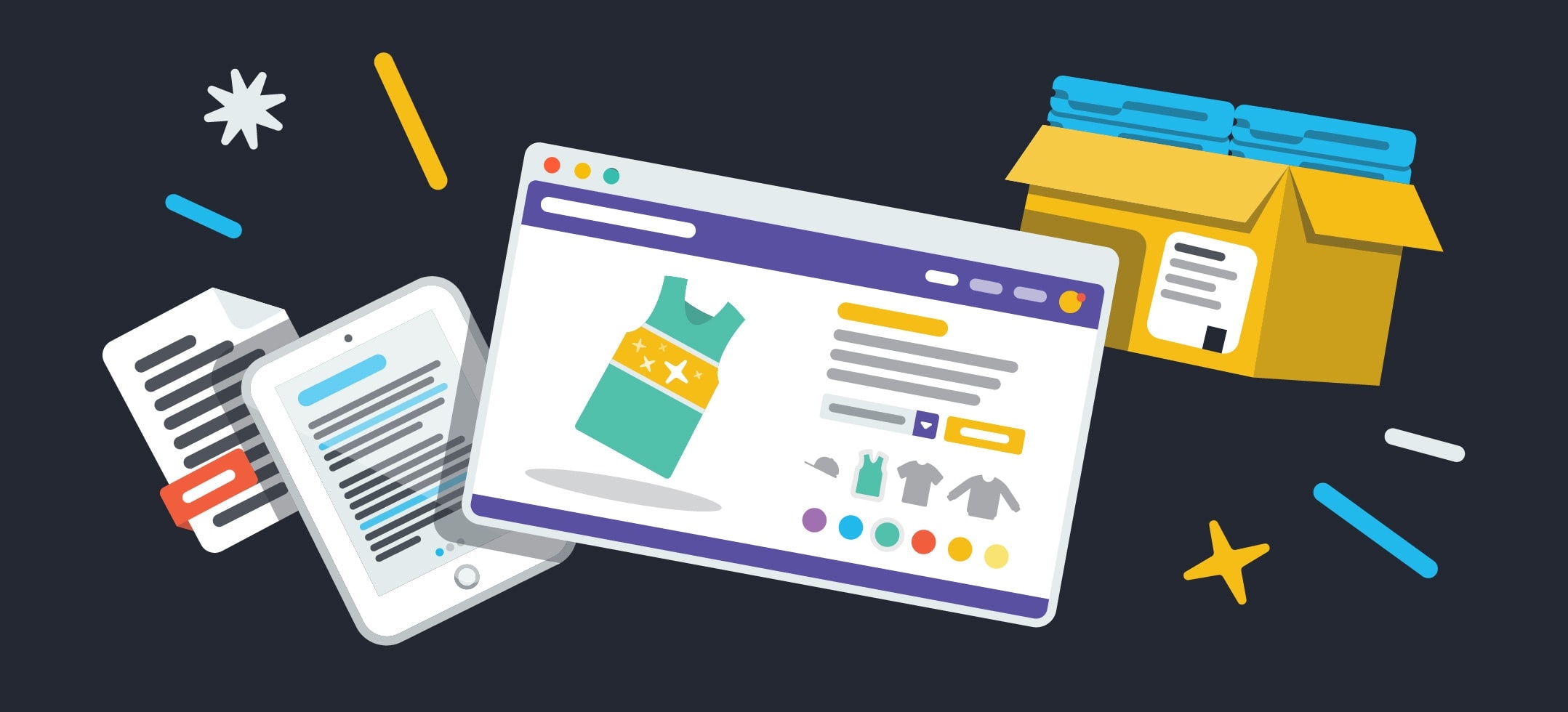
15 Low Investment Business Ideas for Online Entrepreneurs
If you want to move away from the traditional nine to five, you’ll need to launch your own business but that can get pretty expensive and, the trouble is, most entrepreneurs when they’re first starting out don’t usually have a ton of money to fund themselves. If cash is what’s holding you back, you’ll be pleased to know that there are many low investment business ideas you can try out to get your own business up and running, even on a tight budget.
15 Low Investment Business Ideas
1. Dropshipping
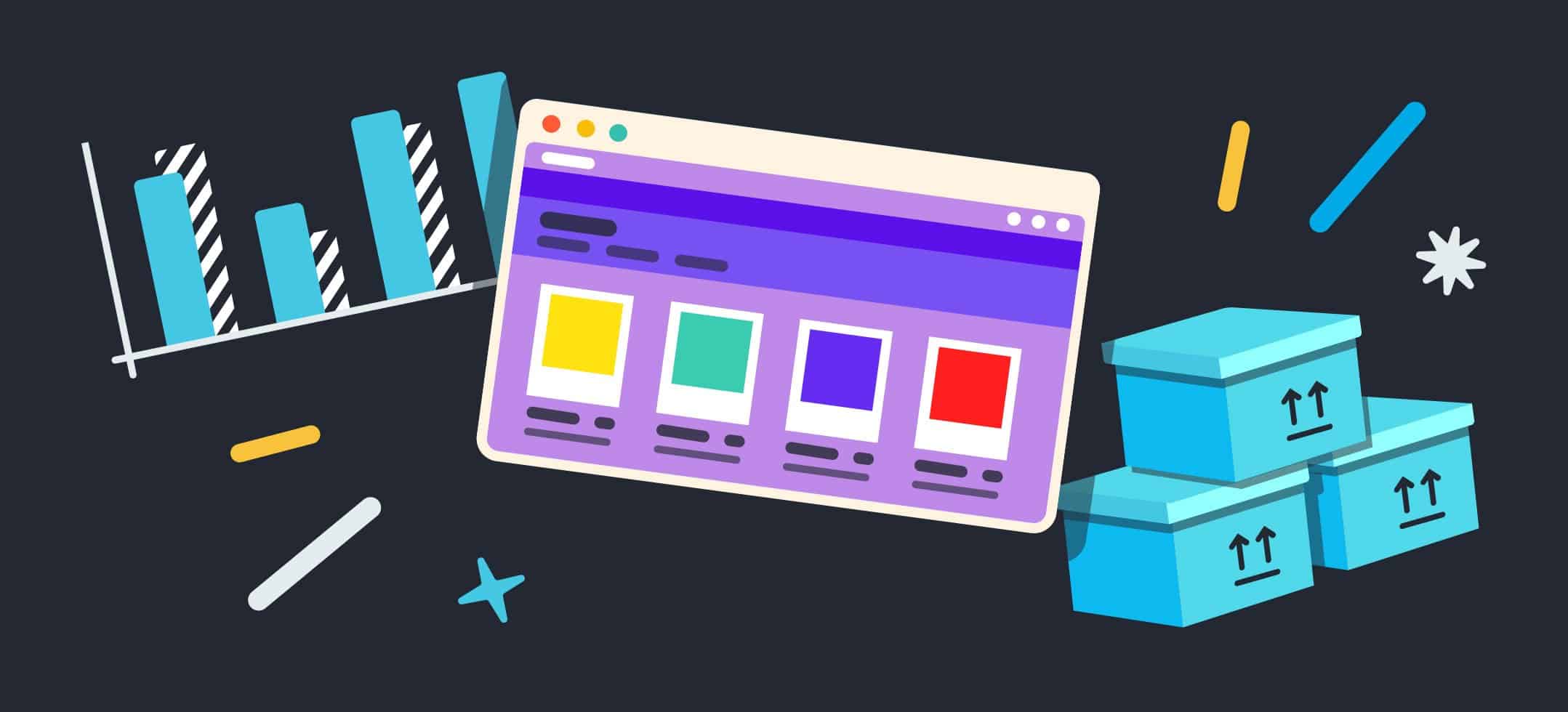
Purchasing and managing inventory is a large financial commitment. Not to mention, it takes up loads of time and effort which you probably don’t have if you’re also working another job on the side.
Starting a business takes more than just researching and finding a selection of winning products—in addition, you have to shell out for stock, budget for warehousing, pay for packaging, and sort out shipping which can all require a lot of money to execute successfully.
This is where dropshipping comes into play.
Check out our Dropshipping 101: What is Dropshipping? article to get an in-depth overview of what dropshipping is. Dropshipping is an order fulfillment model where online sellers (AKA, you, the merchant) utilize third-party suppliers such as manufacturers, wholesalers, or any kind of product supplier in general.
With dropshipping, instead of you being the responsible party for storing and shipping your merchandise to your customers, your supplier does this on your behalf but in a way that makes it appear to your customers like the orders are coming directly from you.
How it works is when a customer makes an order on your website, you pass the order information along to the supplier and they take care of the rest. Consequently, there’s no need for you to handle any of the products, store them in your own warehouse or actually physically fulfill and ship orders out to customers.
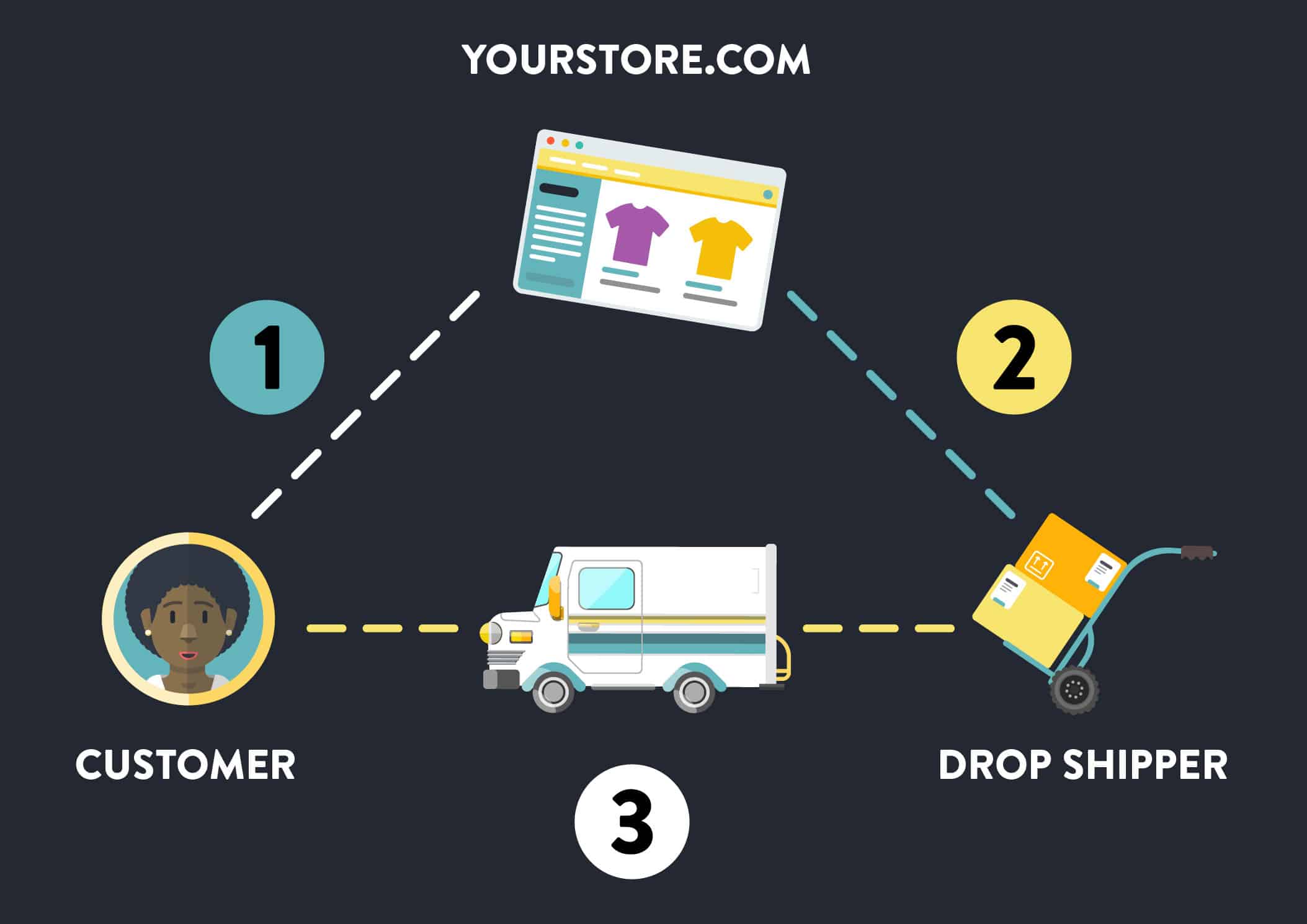
This makes it incredibly easy to curate a variety of different products to sell online from one (or more) suppliers. There’s even a whole host of apps that upload dropshipping product details from the supplier straight onto your own sales pages so they’re ready for you to edit which means pretty much that all you need to worry about is making sales and providing customers with top-notch service!
There are lots of dropshipping apps out there. Some operate from the US and others overseas, so take your time finding a reliable supplier to partner with. On these apps, you’ll find the exact products you can start selling:
To find more dropshipping suppliers, check out our Premium Dropshipping Suppliers Directory here (or access the free version of the dropshipping directory here) and check out our roundup of the 10 Best Shopify Dropshipping Apps if you’re looking for a dropshipping product supplier that will connect directly to your Shopify store.
Start a simple store with some dropshipping products and try to increase website traffic, make sales, and run some ads. We have an entire article dedicated to how you can test product ideas with dropshipping so check that out for more information.
Note: Always order samples of the dropshipping products you’re thinking of selling before adding them on your site. This helps to ensure that you’re stocking high-quality products that you’re comfortable selling to shoppers.
2. Print-on-Demand
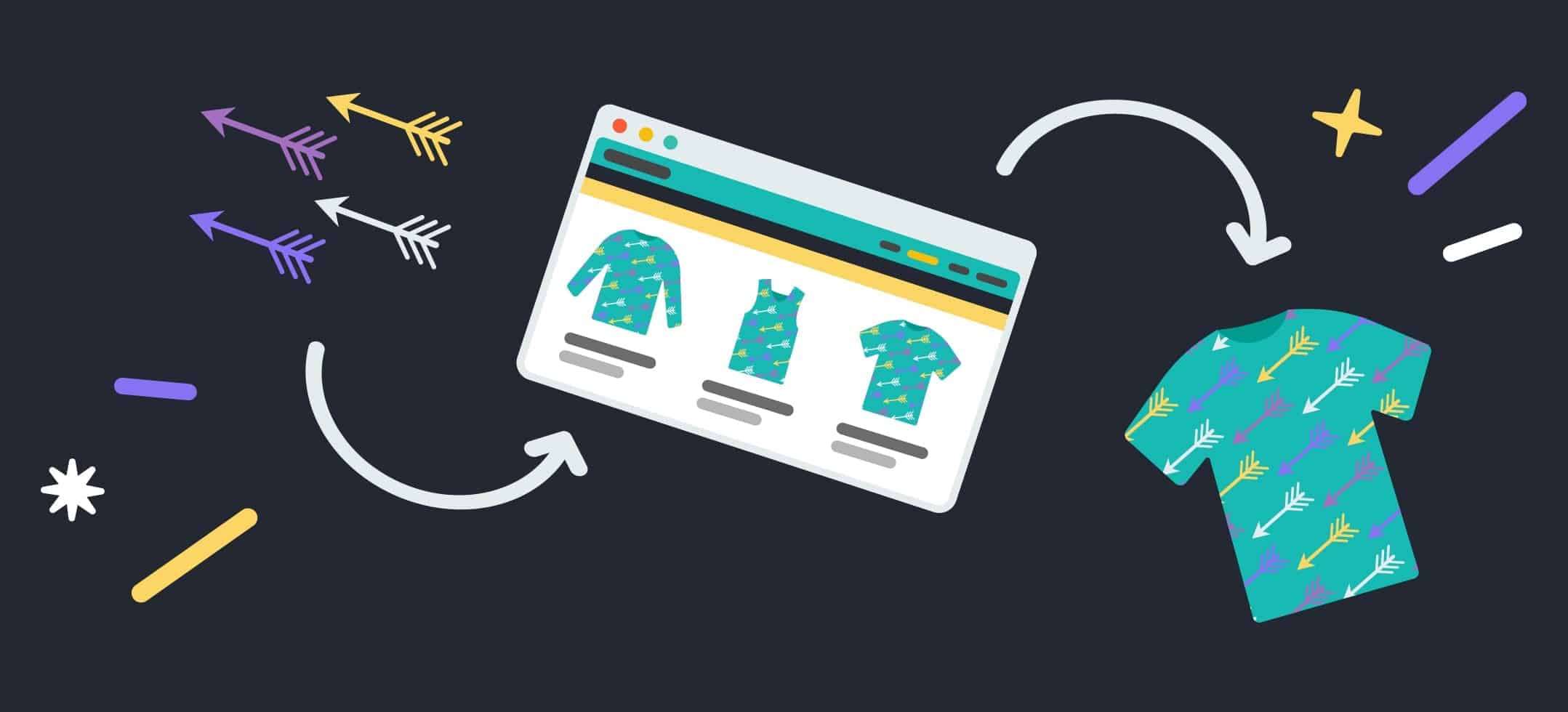
Print-on-demand is a business model very similar to dropshipping so, as we said above, you’ll be relying on a third-party supplier to handle your inventory, shipping, and order fulfillment. The critical difference with print-on-demand, however, is that you’re able to customize products with your own designs.
Common examples of print-on-demand products include:
- T-Shirts
- Hats
- Mugs
- Phone cases
- Hoodies
- Tote bags
- Posters
You name it, there’s a good chance that you’ll find a print-on-demand supplier listing the specific kind of product you want to customize. So, if you’re creative and you have artwork or designs that you want to sell, this might be the perfect business model for you!
If designing isn’t your strong suit, however, head on over to one of the many freelance sites and you can commission artists or creatives to produce high-quality designs for you which you can then get printed on your products. Fiverr, Upwork, Dribbble, and 99Designs are all fabulous examples of freelance sites you could use to find creatives.
It’s worth noting, however, that most print-on-demand suppliers require you to pay per-product which usually results in a higher unit price than regular dropshippers who can buy/make their merchandise in bulk. So although it’s a slight disadvantage that print-on-demand dropshipping doesn’t allow as much room for markups, if a specific design doesn’t sell you also won’t have wasted a dime because you don’t purchase stock until you’ve sold it on your website, meaning there are no upfront costs as far as inventory is concerned.
There are plenty of print-on-demand services out there and the majority of them integrate with Shopify so if you’re already running a store via this ecommerce platform, you should, in theory, enjoy a smooth and fully automated order fulfillment process. Some of the popular print-on-demand companies include:
For more print-on-demand dropshipping resources, check out Creative Market to create DIY designs for your products, this list of the Best T-Shirt Mockup Templates if you’re going to be focusing exclusively on starting up an online t-shirt business and also Placeit which can help you create beautiful mockups for a wide variety of different products which you can use as product photos on your website or in social media posts and ads. It’s a great idea to use a mockup generator to create your product photos because it’s way easier than getting every single product of yours printed and shipped for you to photograph and manually upload to your online store.
3. Service-based business
You can run a small business from home quite easily. From childcare services to tutoring to data entry business ideas, a service-based business has a low initial investment. If you don’t mind heading outside of your home, you can offer services, such as caregiving, interior decorating, home organization, personal training business, or even house cleaning. A low cost business idea will require more labour on your end as you trade time for money, but you could potentially earn quite a bit with your skillset.
You can build a profitable business through digital marketing by promoting your business via ads, social media, online, or any other way. A successful business will require a ton of word-of-mouth promotion. So to get your first couple of clients, you’ll want to post on social media how you excel in the service business. You might go door to door to leave flyers if you own a small business locally. If your business goes beyond your neighbourhood, you can run ads to find clients.
4. Write an Ebook
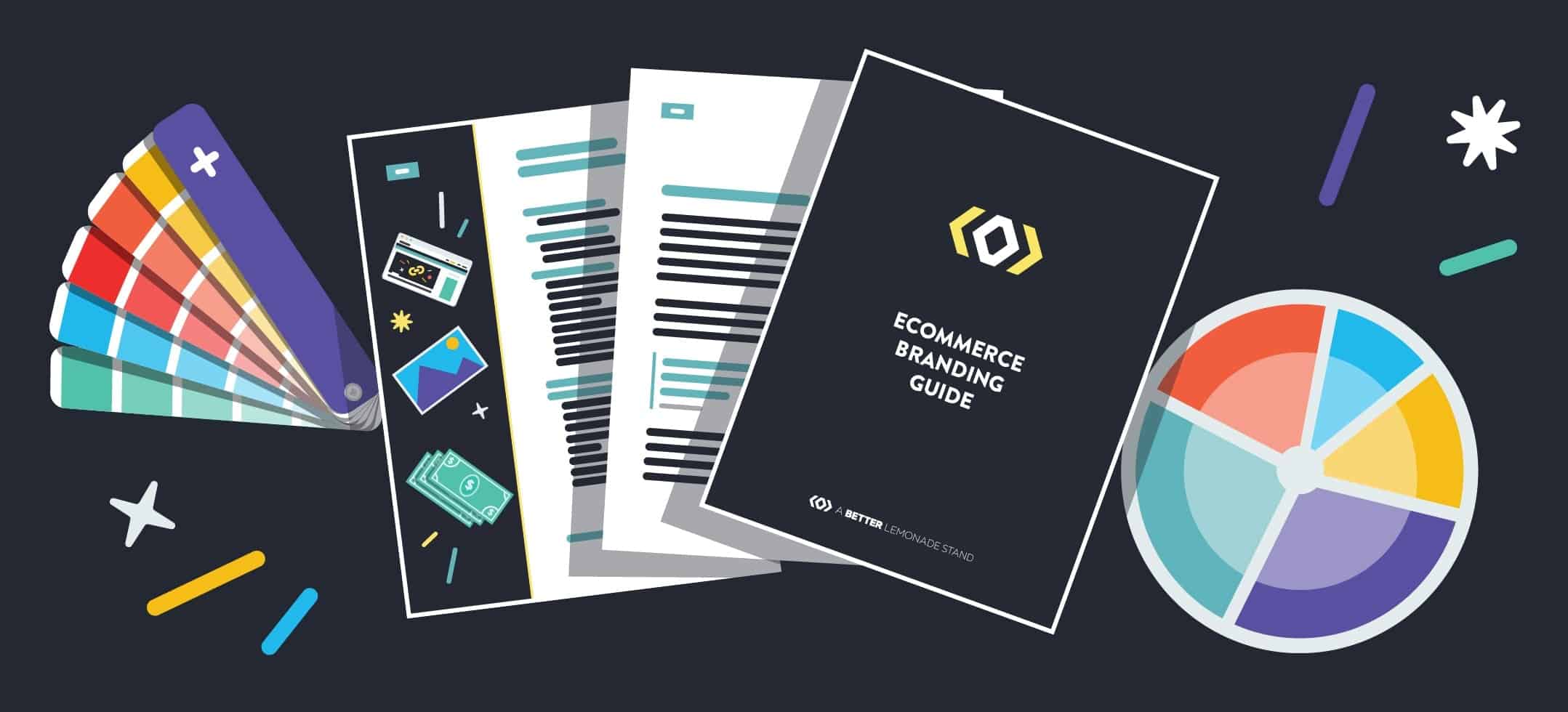
If you’ve always dreamt of writing an all-time classic or something helpful and useful, consider writing and launching an ebook. You don’t have to be a word wizard—you just need enough knowledge about a specific area of expertise to provide value to your target demographic.
For example, if you’re a dog trainer, you could write an ebook giving away your best puppy training tips. Or if you have experience in Human Resources, you could write an ebook about the best recruitment practices. The scope of what you could write about is limitless—just think about what you’re good at and go for it!
If you’re unsure of where to start, head over to Lulu Xpress or Blurb. These are both superb services that can help you create and distribute your own books either as digital or physical products.
5. Freelance business idea
We all have skills that we can trade our time for. So what better way of coming up with small business ideas than to look at your skillset? A profitable business idea starts with your talent. For example, if you are a great writer and marketer, you can do freelance writing. If you excel at programming, you can become a freelance developer. Those of you with number chops, can become freelance bookkeepers or accountants. If you spend most of your spare time on social media, you can offer yours services as a freelance social media manager.
To build up your clientele, think about the industries you know the most about. For example, if you’re an expert in developing apps, you might reach out to every app in the app store and ask if they need any development work for any of their current or future projects. Doing cold outreach to thousands of apps will likely net at least a few decent responses and some work for you. Cold outreach is a numbers game after all.
You can also join sites that specialize in freelancers, such as Fiverr, Upwork, Toptal, or Freelancer. On these sites, you’ll be able to create your own category for yourself or find many more categories that make better sense to you. But remember that there are guidelines and rules to follow when you freelance on a third-party site.
6. Create & Sell Digital Products
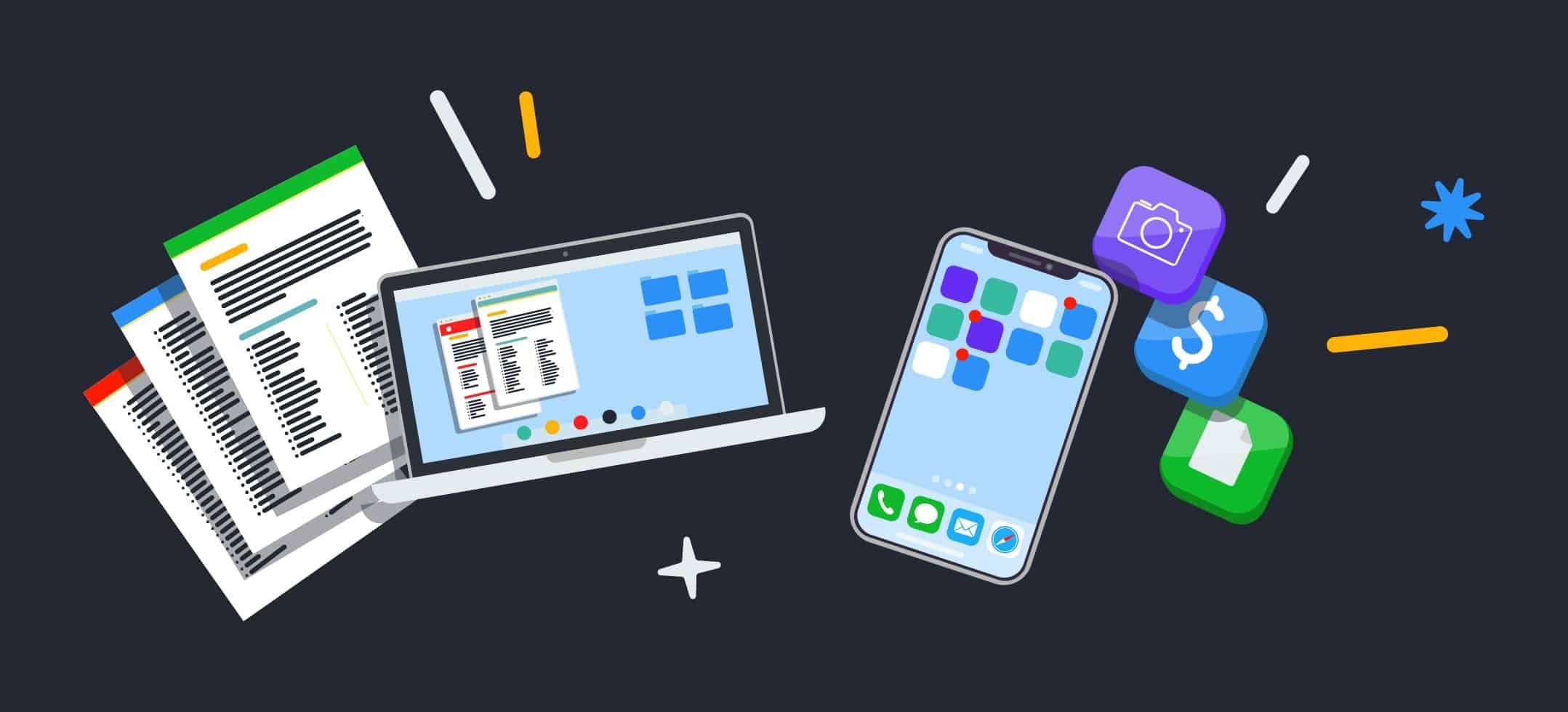
These days, there’s an incredible amount of demand for digital products. From online courses to downloadable music to ebooks, there are tons of exclusively-online products that you can create and sell.
Not to mention, if you’re new to online selling, digital products are great to get started with because you don’t have to budget for manufacturing, inventory, or shipping costs which means your profit margins should remain relatively high.
If you already have a Shopify store and want to branch out into digital products, you can download Shopify’s free digital downloads app. This enables you to sell digital products online alongside your physical merchandise. If you aren’t using Shopify, you can also sell digital products through WordPress/WooCommerce (although it’s a self-hosted ecommerce platform option as opposed to a hosted option like Shopify or BigCommerce), BigCommerce—learn more about adding downloadable products to your BigCommerce store here, Squarespace, BigCartel, Gumroad, Sellfy, and Pulley.
Note: For an extensive list of digital product ideas, check out our How to Sell Digital Products Online article. There, you’ll get a comprehensive overview of the different types of digital products that exist plus information on how to create digital products, where to sell digital products, and how to price digital products.
7. Wedding Planning Business
An event planning business of any kind can be a great low-investment business idea. If you’re looking to specialize, the wedding planning business can be a worthy business to start. From being a personal shopper to a personal chef, there are many niche businesses within the wedding planning category that can be low-investment. If you’d prefer, you could help the bride and groom plan their special day.
The one big advantage you’ll need to have to succeed in this small business idea is to build your network of connections. You’ll want to have preferred rates for venues, photographers, DJs, decor, florists, and more. Building this kind of network that are highly rated by guests and newlyweds takes time, though. Despite its seasonality, it can be a very good business idea for those looking for work that occurs mostly on weekends and during the summer months.
8. Subscription Box Business
One of the low cost business ideas in the commerce space is to build a subscription box business. You can sell these either locally or online. For example, say you’re a makeup artist who works out of a studio. You might see hundreds of people every year, you can promote your business to people locally and deliver boxes to those who live in your community yourself to save on shipping costs. You might have suppliers nearby that you can source products from to help promote your products to customers.
If you’d prefer to sell to a global audience, you’ll need to pick a niche. For example, by diet, snacks, beauty, by country, kids, clothing, jewelry, and more awesome niches for your very profitable business. Your box could be worth “$100” retail while only costing $20 wholesale. If you sell for $50 a month, you earn $30 profit. People get excited about unboxing things, which can make it a fun experience to buy your products.
9. Create an Online Fashion Brand

If you have a passion for fashion, this might be an avenue worth considering. After all, starting an online clothing line can be far cheaper than opening a brick-and-mortar fashion boutique and, when done well, the return on your investment can be much higher!
If you don’t consider yourself a fashion designer have no fear, you can use the dropshipping business model we mentioned above to start an online fashion store but still keep it low cost.
Really and truly, launching your own fashion brand has never been easier or lower cost. Numerous product sourcing apps integrate directly with Shopify, WooCommerce and plenty of other major ecommerce platforms which comes in especially handy for finding, selecting, and uploading apparel and accessories to sell on your store.
To find fashion items so you can start a clothing brand for very little upfront investment, check out these particular suppliers, or head over to our Dropshipping Suppliers Directory for more:
10. Pet sitting or dog walking business
Easy small business ideas can be started with minimal supplies. For example, if you live in a big city, dog walking and pet sitting services can be a profitable business idea to start. The initial investment is a time one. As your business grows in popularity, you might hire dog walkers to help walk all the dogs on schedule. You can create plans with dog owners for morning walks, lunch walks, and evening walks, depending on their availability. A weekly rate for dog walking is common. For pet owners who are on a business trip, a pet sitting service can be added on to dog walking, to ensure that you put out food and water for the dog twice a day.
You can join local Facebook groups for your community to let them know about your business to attract potential clients and then go on a referral word-of-mouth recommendation from there. It doesn’t take a huge investment to get started, nor do you require much business planning. However, you’ll want to incorporate your business in case dogs run away or get injured during your walks. On average, dogs are grouped together by size and friendliness.
11. Real estate business
The real estate market is one with many success stories. While you will need a license to sell homes, it tends to be pretty easy to get. While inflation and interest rates might lower house prices temporarily, one thing is certain: land on this planet is finite. And with houses not being built fast enough, there’s strong demand for houses. Whether you work as a realtor or investor, there will be some financial investment but you can start small by flipping condos. You can even tack on a handyman business, if you’re able to renovate homes yourself by painting walls or changing floor boards to increase the house value. As your business grows, you can begin to take on more capital intensive work, such as buying duplexes or starting a construction company to build homes. So, this lucrative business idea can grow as big as you’d like it to, depending on the direction you take it.
12. Sell Homemade Goods

If you’re an avid crafter or Pinterest user and can’t get enough of DIY projects then you might as well earn some extra cash from your passion! It doesn’t matter whether you make homemade cards, pottery, soaps, bath bombs, furniture, or whatever else you enjoy manufacturing in your spare time, there’s a good chance that there’s a market online you can appeal to.
Unfortunately, if this is a route you’re considering, unlike the other business ventures on this list, you’ll have to bear in mind that you’ll likely be responsible for your own inventory and shipping management because you’re creating products from home so you won’t have automatic access to storage and shipping facilities. This means that you’d need to handle this all yourself or, as you expand, find a fulfillment warehouse to outsource to.
Most entrepreneurs who undertake this kind of home business start off working on a per-order basis and then, over time, they scale up to handle small batches of orders. Once your business gains more traction, you’ll eventually have both the funds and infrastructure to handle consistent sales.
13. Landscaping business
A landscaping or snow removal business can be one of those business ideas with low costs. You might need a couple of products like a lawn mower, weed killer, or even a shovel, depending on the season. This business idea can be started quite easily. You can go door to door to find potential customers, promote in a local Facebook group, or in online classifieds.
Depending on the size of your business, you can eventually hire a team to help you manage the workload, so you can focus on growing your customer base without having to do all the work yourself.
14. Furniture Assembly
A business venture you can start with minimal advertising costs is furniture assembly. Using free sites like Kijiji, you can post your services for furniture assembly once a week to get customers coming in. Many people work in teams of two such as a husband and wife duo or parent and adult child. This is a good business idea where you trade your time for money. If you’re saavy at assembling Ikea furniture, many frustrated new homeowners will call on you for your services when they struggle to get that last piece in. With new people moving in each month, you’ll have people calling you year-round for your services.
15. Coaching
One of the most profitable business ideas is a coaching business. You can set your own rates depending on who your clientele is. For example, those working as an executive coach will be able to charge more per hour to give the advice that only senior executives would use to grow their businesses and make sound decisions.
If business isn’t for you, no worries. Coaching is available in many niches. You can be a public speaking coach to help people perfect how they carry themselves when speaking. Alternatively, you can be a fashion coach, and work as a personal shopper for clients to help them look their best.
If you have a degree in counsellor or social work, you can work as a freelance counsellor. There are countless organizations that have directories of mental health counsellors that you can reach out to to find clients.
7 Low Investment Business Ideas Tips
If you like the sound of one (or more) of these low investment business ideas, take on board the following pieces of advice as they’ll likely help your venture get started on the right foot.
1. NICHE DOWN
Picking a niche is essential. It may seem hard at first—especially if you have several passions you’re tempted to pursue—but trust us, if you’re serious about profiting from your business, you’ll be amazed at how much easier it is to market an industry-specific brand than a general one.
Without an effective marketing strategy, you won’t make money. Period. It’s not enough to just have a fantastic business idea and a flawless online store—you need to get your products in front of people who actually want to buy what you’re offering. This means finding your ideal customers and driving them to your online store.
This is where you’ll thank your lucky stars you have a niche.
When you only have to worry about one demographic, you can then tailor your content and ads to resonate with that audience, which should result in higher conversion rates.
Not to mention, having a niche also makes it easier to keep your branding consistent which, as we all know, is critical for boosting brand recognition and building a healthy rapport with prospective customers.
2. INFLUENCER MARKETING
If you’re new to online selling, there’s a good chance you won’t have a big audience. This is where influencer marketing is really useful because you can quickly tap into a pre-established following that is relevant to your industry.
Just head over to YouTube, Facebook, and/or Instagram and type in keywords that are relevant to what you’re selling, and see who appears. You can do the same with Google to see which bloggers have already established themselves in your niche. Alternatively, use influencer marketing marketplaces like Famebit to really hone in on influencers in your niche.
Now, all that’s left to do is reach out and contact the bloggers and influencers you’ve found. Say, for example, you’re trying to market your ebook—send them a free copy and politely request if they’ll give you a shout out or ask them if they have any advertising options you can purchase from them.
3. START A YOUTUBE CHANNEL
If you haven’t already, it’s time that you create a YouTube channel for your business to market your new business. After all, it’s the second most-visited search engine after Google so it’ll come as no surprise there are millions of daily searches for “how-to” videos.
In light of that, we suggest posting short, sharp, and engaging videos that provide viewers with actionable advice pertinent to your niche.
But, it’s not enough just to do this once and hope for the best. Commit to the long haul and create and publish regular videos on your channel. This is the only way you’ll gradually build up your following and it’ll encourage your audience to come back for more!
Note: Don’t forget to paste a link to your online store’s website in your video descriptions, this helps drive targeted traffic to your online store!
4. OPTIMIZE YOUR SOCIAL MEDIA PROFILES
You need to optimize all your social media profiles because, in addition to your website and blog, these channels are excellent platforms for positioning yourself as an expert in your industry.
Updating your bio on each of your handles is one of the simplest things you can do to communicate your area of expertise. You should also link out to your website so that potential prospects can easily find out more about what you have to offer should they want to.
5. CREATE A HIGH-CONVERTING SALES PAGE
When creating the product description for your sales page, you’ll want to communicate the benefits of your products clearly. By this we mean highlighting the desired result, achievement, look, or feel that your target audience craves. If you don’t think you have the writing chops to do the job justice, hire a professional copywriter from freelance marketplaces like Upwork, Fiverr, FreeeUp or iWriter.
Note: For SEO purposes, be sure to naturally incorporate some keywords to help you rank higher in search engine results. To learn more about keywords and how they play a role in SEO, check out our KWFinder Review: Boost Your SEO With Data-Driven Keywords article.
6. OFFER A GUARANTEE
We highly recommend that you offer customers a satisfaction guarantee. You’ll be amazed at how this helps increase sales.
It stands to reason that consumers don’t like taking risks so, by providing that guarantee, you help them overcome an objection that might have otherwise prevented them from making the purchase.
It also shows how confident you are in your products. After all, you wouldn’t offer a refund unless you were sure that very few shoppers (if any) were going to utilize this policy.
Note: If you’re unsure how long to offer a guarantee, 30 days is typically the standard time frame.
7. SHARE CONTENT ON PINTEREST
If you have an eye for design, creating infographics or blog posts and sharing them on Pinterest could be an excellent way for you to market your business.
Just conduct some research to find interesting facts and stats, and present them in a beautiful infographic-style design that’ll engage your target audience. Like we’ve said time and again, we highly suggest including a link in your post. This is very effective for driving traffic from Pinterest to your website.
If you’re unsure of how to create fabulous looking Infographics head to YouTube, there are tons of useful tutorials. Again, you can also use Canva and Creative Market to create graphics that abide by Pinterest’s image size requirements.
Conclusion
Have any of these low investment business ideas fuelled you with inspiration? Or, have you just recently launched one of the above ventures? If not, and if you want to start your very own online business but don’t have a lot of cash to contribute then try out one of these low investment business ideas for yourself!



